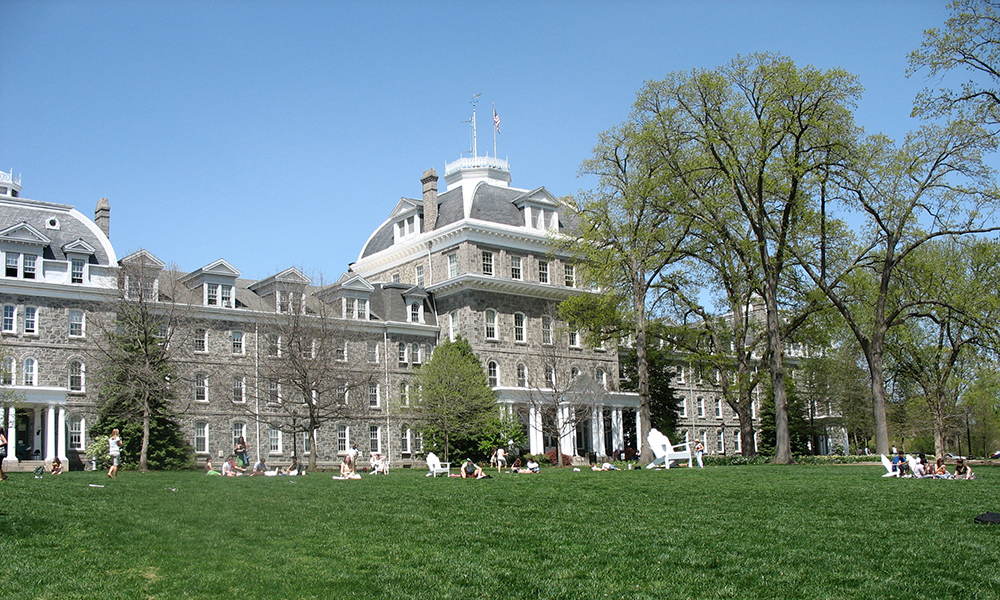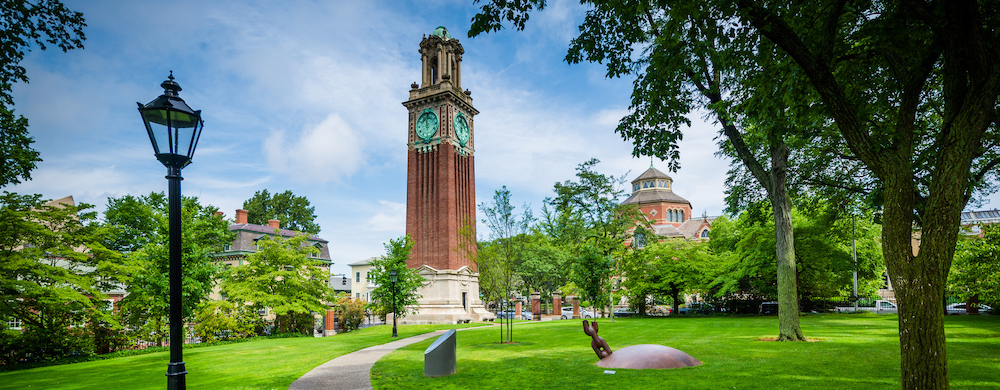Princeton tops many students’ lists for dream schools to attend. Like most other Ivy League colleges, the university is known for its rigor and increasingly competitive applicant pool. As competition for a seat at the top-rated college intensifies, most future applicants are asking themselves the same question: What does it really take to earn admission to Princeton University?
How to Get into Princeton University: Table of Contents
- When to Apply to Princeton University
- How Hard Is It to Get into Princeton: Early Prep
- How Do You Actually Get into Princeton: The Application
- Class Profile
- What Makes Princeton University Unique?
- Princeton University FAQs
When to Apply to Princeton University
There’s no doubt, getting into Princeton University is a major accomplishment. It’s not a game of luck — years of hard work and dedication are needed, as well as some very careful planning. High school seniors will apply to Princeton during either fall term or winter break, depending on which admissions timeline they choose. It’s important to keep track of the deadlines to ensure you submit all your materials on time.
Princeton Deadlines
Students have two options for applying to Princeton: Single Choice Early Action (SCEA) and Regular Decision (RD). The deadlines may vary slightly from year to year but generally fall around the same date. Here’s what the timelines look like for the 2024-25 admissions cycle:
- November 1: Single Choice Early Action application
- November 6: SCEA optional arts supplement
- November 9: SCEA financial aid application
- January 1: Regular Decision application
- January 8: RD optional arts supplement
- February 1: RD financial aid application
Students applying SCEA can expect an admissions decision in mid-December. Regular Decision applicants receive their decisions in late March. May 1 is the deadline for students to let Princeton know of their decision to enroll.
Early, Rolling, and Regular Decisions
As you start applying to college, you will likely notice different application options, such as early, rolling, and regular. There are two types of early applications:
- Early Decision, which is binding and means students are confirming they will enroll upon acceptance.
- Early Action, which is non-binding.
Princeton’s Single Choice Early Action falls somewhere between these two, as applicants may apply early to public universities and international institutions but are restricted from applying early to additional private colleges. Students should only apply early if Princeton is a top choice and they can submit a strong application without senior year grades.
Like most schools, Princeton offers Regular Decision — the most common admissions option. RD is a non-binding option, and students can apply to as many schools as they like.
Rolling admission, which Princeton does not offer, is basically a first-come, first-serve process. Students submit as soon as they are ready and learn about their admissions outcomes several weeks after submission. Generally, it’s best to submit your application on the earlier side, as RA schools continue to accept students until they reach their enrollment capacity.
Waitlisted Applications
Regular Decision applicants may be waitlisted instead of being denied or admitted. If you’re waitlisted, that typically means you’re qualified for admission, but there were not enough spaces in the incoming class. It can be hard knowing what to do if you get put on the waitlist.
You can choose to accept or decline your spot on the waitlist. However, waitlist admission rates tend to be low at highly selective universities. Out of the 1,734 students who were waitlisted at Princeton for fall 2024, only 40 were admitted.
Deferrals
If you apply SCEA to Princeton, you may be deferred, meaning your application will be reviewed during the Regular Decision round. It’s important to understand what to do if you have been deferred. Princeton admissions ask deferred students to submit midyear grades. They also accept an additional recommendation letter, but this is optional — consider requesting one from someone who can provide a different perspective than a teacher or school counselor.
How Hard Is It to Get into Princeton: Early Prep
Princeton has one of the lowest acceptance rates of any U.S. college, as these admission rates show.
- Class of 2025: 3.98%
- Class of 2026: 5.70%
- Class of 2027: 4.50%
- Class of 2028: 4.62%
To be competitive, you must excel academically and pursue activities related to your interests. Since Princeton reviews your entire high school record, it’s important to start building your profile in ninth grade.
Build Your Profile
What does Princeton look for? As an Ivy League university, Princeton values academic rigor and intellectual curiosity above all else. Like most colleges, Princeton looks for students who are passionate about academics, have defined interests, and can convey the impact they will have on campus. As an applicant, you will be evaluated holistically, meaning that strong personal and extracurricular accomplishments are valued in addition to your academic record.
Visit the Campus
One of the best ways to decide if Princeton is right for you is to visit the campus. Princeton offers information sessions with student-led tours on weekdays and student-led tours only on weekends — registration is required. You can also take a self-guided tour of campus using your smartphone.
Can’t make it to campus? You can also register for a live virtual information session with an admission officer and/or a live Tiger Walk campus tour with student tour guides via Zoom.
Connect with a Student
Connecting with a current student is a great way to gain another perspective on enrolling at Princeton. The admission office offers Tiger Talks, an opportunity for prospective students to speak to current students on Zoom. Tiger Talks are meant to be casual conversations about campus life and the Princeton experience.
Learn About Any Student Experiences
While Tiger Talks are a good way to connect with current Princeton students, don’t forget to talk to student tour guides. Both the on-campus and live virtual tours provide you with an opportunity to talk to the tour guide and ask questions about their experience at Princeton.
How Do You Actually Get Into Princeton: The Application
To understand admission outcomes, look at the data in Princeton’s Common Data Set. Released annually, the CDS provides you with the statistics of newly enrolled students. This can help you plan a strategy for grades, test scores, and other elements of your application to ensure you have the strongest chance for admission.
GPA Requirements
While there isn’t a clearly defined minimum GPA that students need to aim for, every applicant should strive to maintain the highest GPA possible. For the class of 2028, the average high school GPA was 3.95.
SAT and ACT Scores
For the 2025-26 admissions cycle, Princeton requires applicants to submit standardized test scores. Princeton was test-optional for the class of 2028, but many applicants submitted their scores, which can provide some insight into what a competitive score is for admission. The middle 50% of students for fall 2024 admission scored 1500-1560 on the SAT and 34-35 on the ACT.
Personal Statement
In addition to hard factors like grades and test scores, students will also be evaluated on soft factors — the personal statement being one of the most important. Your personal statement is your response to one of the seven Common App essay prompts. Use this opportunity to demonstrate your writing skills and reveal something new about yourself that isn’t elsewhere in your application.
Essays
In addition to your personal statement, you will also have to write Princeton supplemental essays. Unlike the Common App essay, these essays are specific to Princeton, so it’s important to demonstrate your knowledge of the school and your interest in attending within your responses.
For the 2024-25 admissions cycle, students are asked to respond to two longer prompts and three short-answer questions. Students applying to A.B. or B.S.E. programs or who are undecided must respond to an additional prompt.
The two main supplemental prompts are:
1. Princeton values community and encourages students, faculty, staff and leadership to engage in respectful conversations that can expand their perspectives and challenge their ideas and beliefs. As a prospective member of this community, reflect on how your lived experiences will impact the conversations you will have in the classroom, the dining hall or other campus spaces. What lessons have you learned in life thus far? What will your classmates learn from you? In short, how has your lived experience shaped you? (Please respond in 500 words or fewer.)
2. Princeton has a longstanding commitment to understanding our responsibility to society through service and civic engagement. How does your own story intersect with these ideals? (Please respond in 250 words or fewer.)
Letters of Recommendation
Princeton’s admissions officers want to better understand how you contribute to the classroom and your school. To do this, they ask for two recommendation letters from teachers and one from your school counselor.
We generally advise students to select teachers from their junior year, as they will be most up to date on your current academic performance. Get the ball rolling by asking teachers to write your letters at the beginning of senior year. This will give them enough time to reflect on their academic journey and write something compelling.
Admission Interviews
Many Princeton applicants will have the chance to participate in optional interviews with alumni. These conversations are an excellent opportunity to learn more about the campus and to demonstrate your interest in attending Princeton. If alumni are available in your area, you will receive an email to set up an interview. If you are unable to interview, you will not be at a disadvantage in the admissions process.
Contribution to the Princeton Community
Another important consideration for the Princeton admissions committee is the contribution you will make on campus. Your essays, academic achievements, and extracurricular involvement will help tell the story of the impact you have already made in your school and community. You can include specific details about Princeton, such as classes, campus organizations, and research opportunities that interest you to highlight what you hope to contribute to the university.
Class Profile
The admitted student profile is a valuable resource for application information. Below are some key highlights from the class of 2028:
What Makes Princeton University Unique?
With a diverse array of academic and extracurricular offerings, Princeton will appeal to students with an array of different goals and passions. The school has an idyllic campus about 55 miles from both NYC and Philadelphia, giving students the opportunity to pursue major internships while experiencing a close-knit campus culture.
Students have plenty of opportunities to get involved on campus. Princeton offers 38 Division 1 intercollegiate varsity teams and 39 sports clubs, including ballroom dancing and ultimate frisbee. If sports aren’t your thing, there are more than 500 student organizations to join, with focuses that range from community service to politics and debate.
As the fourth oldest university in the U.S., Princeton has a long and rich history of traditions. Cane Spree, which has existed in some form since the 1860s, has first-year and sophomore students competing for class supremacy through various sport activities and ending the day with a barbecue. One of the most popular traditions, the bonfire, only takes place when Princeton’s football record for the season tops Harvard’s and Yale’s. Students often adorn the pyre with an outhouse and effigies of the Yale Bulldog and John Harvard.
The Princeton campus displays one of the most renowned collections of 20th- and 21st-century sculpture in the nation. The Princeton Atelier, a collaborative program between professional artists from different disciplines, is open to any student — Atelier courses are offered each fall and spring.
The University is also known for its active alumni network and famous graduates including Michelle Obama, Brooke Shields, David Duchovny, F. Scott Fitzgerald, Alan Turing, Jeff Bezos, Sonia Sotomayor, James Madison, and Woodrow Wilson.
Princeton University FAQs
Where is Princeton University?
Princeton University is in Princeton, New Jersey, about 55 miles from both New York City and Philadelphia.
What is Princeton University known for?
Princeton is one of the eight Ivy League schools. Founded in 1746, it is the nation’s fourth oldest college. As one of the top universities in the U.S. and the world, Princeton is known for its research and rigorous academic programs.
What GPA do you need to get into Princeton?
Princeton does not specify a minimum GPA for admission.
What is the acceptance rate for Princeton?
What does Princeton look for in students?
Princeton looks for students who are academically gifted and intellectually curious, and who have deeply pursued their interests. The admissions committee seeks to admit students who will make an impact on campus and the broader community.
How many students attend Princeton University?
The total student population at Princeton is approximately 8,800: nearly 5,600 undergraduates and 3,212 graduate students.
Admission Counseling
Students will be competing with peers across the globe for a seat at Princeton. Since the application process is complex, every student can benefit from working with an admissions counselor who can offer guidance for every step of the process. You can work with an admissions counselor at any stage of your college admissions journey, whether you’re starting to build your profile or beginning to work on your college applications.
Getting into Princeton is undeniably challenging, so it’s important to submit the strongest application possible. IvyWise college admissions counselors have all sat in committee, so they know what admissions officers are looking for and what it takes to stand out. If you want to be a Princeton Tiger, take the first step today and schedule an Initial Consultation.
Get Started




